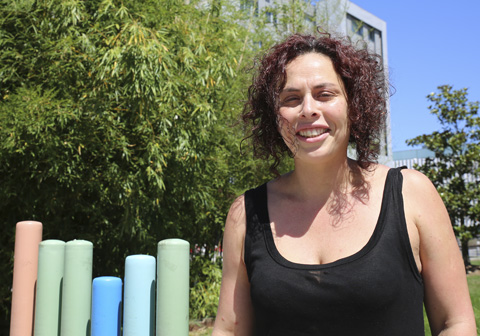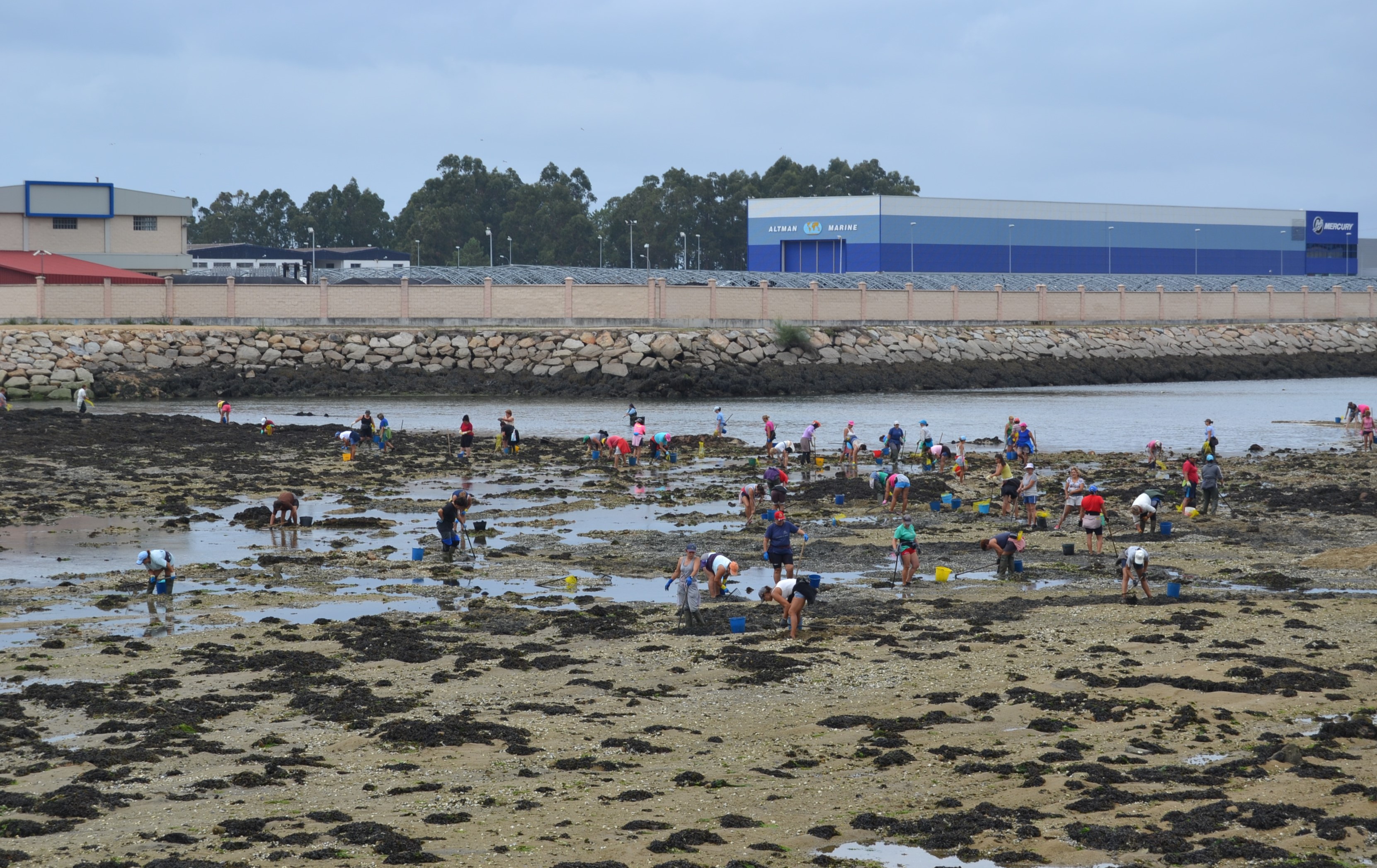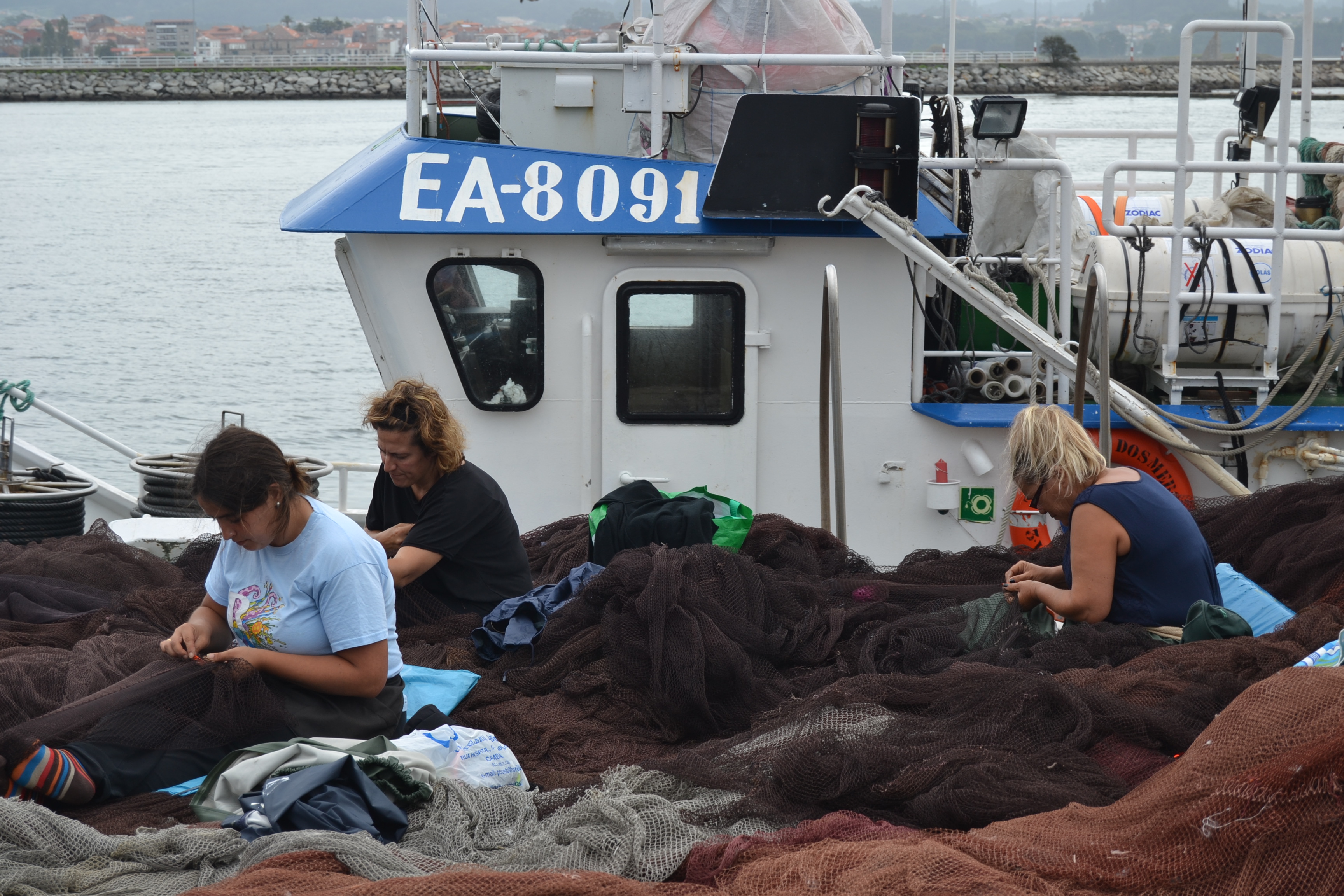The recent job regularisation of female fishery workers in the Basque Country and Galicia has led to changes that in some cases go beyond the mere employment sphere, since participation in these processes has influenced the empowerment and visibility of these women, according to a study conducted in the UPV/EHU's Department of Political Science and Administration.
Making female fishery workers visible
A study by the UPV/EHU-University of the Basque Country links the empowerment of female net menders, packers and ‘neskatilas' in the Basque Country and Galicia with the regularisation of their jobs
First publication date: 18/08/2017

The contributions of the female fishery workers have been endless, not only on the level of production but also in terms of sustaining their communities. Despite that, these workers have rarely been recognised. A study by the UPV/EHU's Department of Political Science and Administration analyses the changes that have been experienced by Galician and Basque female fishery workers (shellfish gatherers on foot, net menders, packers and ‘neskatilas', women responsible for unloading and provisioning the vessels) as a result of their participation in the mechanisms to regularise their jobs, and explores how this participation has influenced the empowerment of these female workers. So the study "has helped to put an end to the invisibility of these women that arises out of the division of labour on the basis of gender and which marginalises the roles and values associated with femaleness, in this case, remaining ashore as opposed to the productive and valued side, which is the sea," said Patricia Martínez, the author of the study.
The results show that the creation of employment associations and the active participation of these women in the processes to regularise their jobs constitute a watershed. This participation, starting with professional accreditation, has prompted these women, who used to play a secondary role, "to speak publicly at congresses, make contact with other female workers, etc. There is considerable empowerment on an individual level because they have acquired social skills and self-confidence, they are no longer afraid," said Martínez. And the fact is that even though the coastal women in Galicia and the Basque Country are very tough, roles and behaviours that reinforce inequality prevail; one is the fact that in Galicia many of the participating female workers "would never have gone out until now without their husbands, for example". The study concludes that the processes that have taken place have given these women a capacity to negotiate; "previously they assumed that they had to do what the shipowners said; now they stipulate their conditions, for example with respect to working at weekends," said Patricia Martínez. Despite this acquisition of power and the changes that this entails, "the prioritising of a perspective strongly focussed on the labour aspect has ended up limiting empowerment of a collective nature that questions the discrimination of these women as an integral, complex phenomenon which also affects the field of political, social and cultural matters".
An uncertain future
Despite the changes that have taken place, female fishery workers "have no generational renewal. Their jobs are highly precarious; although their working conditions have improved, these jobs are very demanding physically and not all of them have their rights recognised in terms of occupational diseases, for example". On the other hand, the fishing sector is not going through its best moment. "The European Community is pursuing a fishing policy that favours multinationals and is suffocating small-scale fishing, and this situation also affects the women". According to Patricia Martínez, this study is "a way of completing the picture that always tells the story of men and in which we women never appear".
Additional information
This study is part of the PhD thesis ‘Empoderamiento femenino en contextos de gobernanza. Las experiencias de las trabajadoras de la pesca en Galicia y Euskadi' (Female Empowerment in the Contexts of Governance. The experiences of female fishery workers in Galicia and the Basque Autonomous Community) which the researcher Patricia Martínez-García (Vigo, 1983) has read at the UPV/EHU. Her thesis supervisors were Rafael Ajangiz-Sánchez, tenured lecturer in the UPV/EHU's Department of Political Science, and Xosé Mahou-Lago, contract lecturer at and holder of a PhD from the University of Vigo. The fieldwork was carried out in coastal towns in the Basque Autonomous Community and Galicia.




